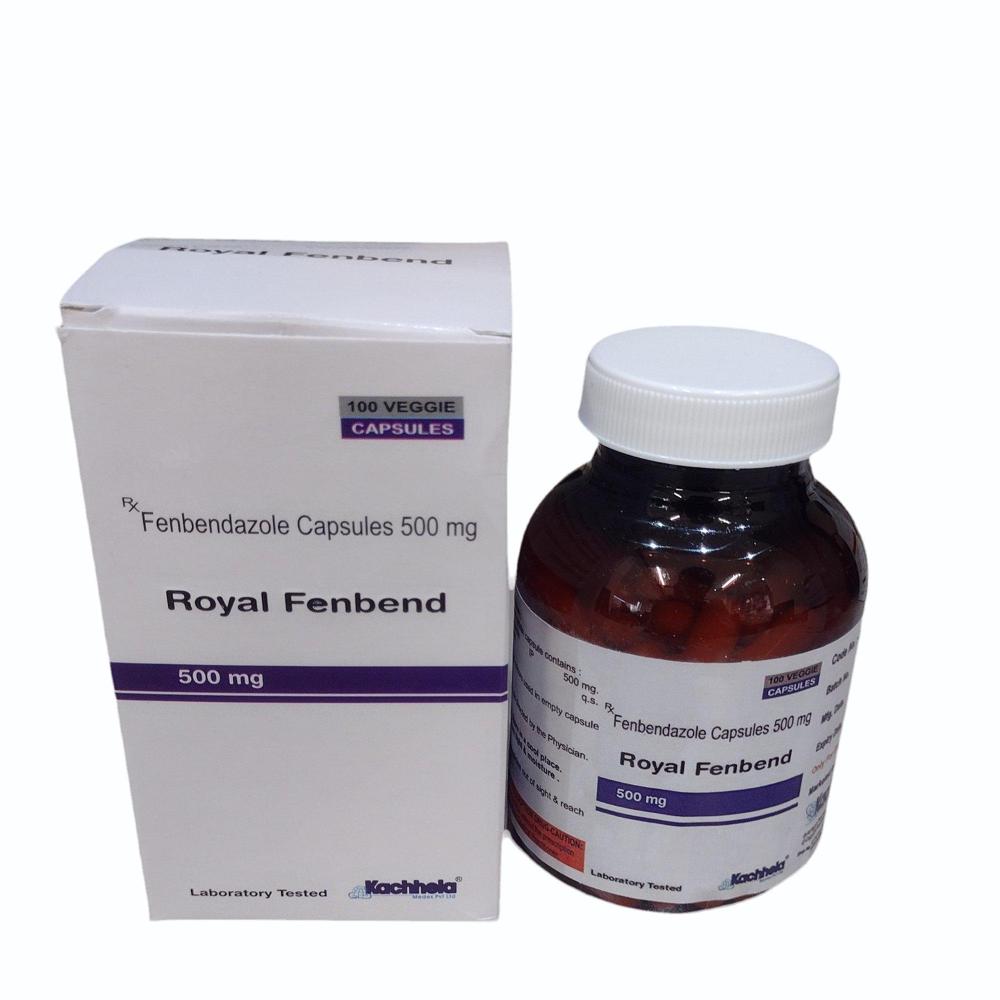Recognizing the Advantages and Uses of Fenbendazole in Veterinary Medication
Fenbendazole has actually developed itself as a key anthelmintic in veterinary medication. Its capability to target numerous parasitical infections makes it a valuable tool for vets. The drug's system disrupts crucial mobile processes in bloodsuckers, leading to effective therapy outcomes. Its safety and security account differs between species, requiring cautious factor to consider in its usage (fenbendazole 444). Understanding these dynamics can lose light on fenbendazole's broader effects in veterinary care and ongoing research study right into its prospective beyond standard applications
System of Action of Fenbendazole

Usual Parasitic Infections Dealt With With Fenbendazole
A range of parasitic infections are successfully treated with fenbendazole, making it a versatile choice in veterinary medicine. This anthelmintic representative is particularly efficient versus nematodes, consisting of roundworms and hookworms, which generally affect canines and felines. It is additionally utilized for the treatment of cestodes, such as tapeworms, offering a broad range of action against both kinds of intestinal parasites. In addition, fenbendazole is useful in taking care of infections triggered by protozoa, particularly Giardia, which can cause gastrointestinal distress in pets. Its efficiency includes treating specific lungworms in dogs and felines, addressing respiratory system health worries linked to these bloodsuckers. Generally, fenbendazole's ability to target multiple parasitical species makes it a useful device in veterinary method, ensuring the health and wellness and well-being of family pets influenced by these common infections.
Safety and security and Effectiveness in Various Animal Variety
The safety and efficacy of fenbendazole differ amongst various pet types, emphasizing the significance of species-specific factors to consider in vet medication. In canines, fenbendazole is generally well-tolerated and efficient against a series of gastrointestinal bloodsuckers, including roundworms and hookworms. For felines, nonetheless, its use is much less usual and may require cautious application as a result of potential adverse reactions.
In animals, such as livestock and lamb, fenbendazole shows efficiency against numerous endoparasites, adding to improved wellness and efficiency. The pharmacokinetics and potential side results can differ noticeably in between species, requiring mindful assessment by veterinarians.
Equines likewise react positively to fenbendazole, particularly for dealing with strongyles and ascarids, though dosage and management routes need to be customized to their distinct physiology. Subsequently, comprehending these differences is essential for enhancing therapy results and guaranteeing animal well-being throughout varied varieties.
Management and Dosage Standards
Appropriate management and dose guidelines are vital for making the most of the healing effects of fenbendazole while decreasing potential negative effects. The dose generally varies relying on the varieties being dealt with, the particular condition, and the solution of fenbendazole made use of. fenbendazole 222. For pet dogs and cats, a common dosage is 50 mg/kg body weight, provided when daily for 3 consecutive days, but veterinarians click for source may readjust this based upon specific wellness assessments
It is necessary to carry out fenbendazole with food to improve absorption and reduce intestinal distress. The medicine is offered in various kinds, including granules and paste, enabling for adaptable management alternatives. Monitoring the pet's action during and after therapy is a good idea to verify effectiveness and security. Furthermore, veterinary guidance is vital to identify the suitable duration of treatment based on the sort of parasitic infection being dealt with, guaranteeing perfect outcomes for the pet's health and wellness.
Future Point Of Views and Study on Fenbendazole
Study on fenbendazole continues to advance, focusing on its possible applications past conventional antiparasitic uses. Current researches have actually discovered its performance in dealing with numerous types of cancer, particularly in veterinary oncology. Initial information recommend that fenbendazole may prevent the development of growth cells and boost the results of various other chemotherapeutic representatives.
Furthermore, researchers are investigating its role in handling intestinal disorders in animals, highlighting its anti-inflammatory residential properties. The flexibility of fenbendazole for various types increases concerns about its safety accounts and suitable dosing routines in varied populaces.
As interest expands, there is a requirement for complete medical trials to develop evidence-based guidelines for these unique applications. Future research study might also explore the devices behind fenbendazole's impacts, potentially leading the way for ingenious healing approaches in vet medication. The ongoing exploration of fenbendazole can considerably boost treatment choices for numerous vet conditions.

Often Asked Concerns
Is Fenbendazole Safe for Pregnant Animals?
The safety of fenbendazole for expecting pets remains unsure. While some researches recommend marginal risk, veterinarians normally suggest care and usually recommend versus its use during maternity unless the advantages plainly surpass potential dangers.
Can Fenbendazole Be Made Use Of in Livestock?
Fenbendazole is typically used in livestock to deal with numerous parasitical infections. fenbendazole 222. Its efficiency versus gastrointestinal worms makes it an important anthelmintic, adding to boosted health and productivity in animals raised for food and fiber
What Are the Negative Effects of Fenbendazole?

The side effects of fenbendazole Read More Here may consist of stomach disturbances, lethargy, and allergic responses. In uncommon situations, much more severe reactions could occur, requiring cautious surveillance Web Site and consultation with a veterinarian throughout therapy.
How Does Fenbendazole Compare to Various Other Dewormers?
Fenbendazole provides broad-spectrum efficiency versus various parasites, frequently contrasting positively to various other dewormers. Its special system targets various life phases, making it reliable, while typically offering a beneficial security account contrasted to choices available on the market.
Can Fenbendazole Be Used for Dealing With Cancer in Pets?
The capacity of fenbendazole in treating cancer cells in pet dogs has garnered rate of interest. Preliminary research studies recommend it might prevent cancer cell development, however better research study is required to confirm its efficiency and security in veterinary oncology.